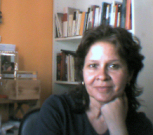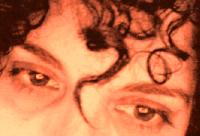| 话题中的页数: [1 2] > | Poll: Do you find reading translation theory useful for your professional practice? 论题张贴者: ProZ.com Staff
|
|---|
This forum topic is for the discussion of the poll question "Do you find reading translation theory useful for your professional practice?".
This poll was originally submitted by emoreda
View the poll here
A forum topic will appear each time a new poll i... See more This forum topic is for the discussion of the poll question "Do you find reading translation theory useful for your professional practice?".
This poll was originally submitted by emoreda
View the poll here
A forum topic will appear each time a new poll is run. For more information, see: http://proz.com/topic/33629 ▲ Collapse
| | | | neilmac
西班牙
Local time: 01:16
Spanish西班牙语译成English英语
+ ...
| If you are a practicing professional | Jan 15, 2008 |
- who has time to read translation theory? I for one am usually far too busy to read more than the local rag or an online newspaper...
| | | | | "Psst! Theory can be useful!" | Jan 15, 2008 |
Hi emoreda,
I am not sure if with this poll you mean that we should read translation theory everyday, every month, once a year or once in your lifetime.
I assumed that you mean that we should read translation theory at some point of our training/education as translators and if that is useful for our professional practice.
In my case, I chose "extremely useful". To me, translation theory is a broad subject, which, as far as I remember from my translation co... See more Hi emoreda,
I am not sure if with this poll you mean that we should read translation theory everyday, every month, once a year or once in your lifetime.
I assumed that you mean that we should read translation theory at some point of our training/education as translators and if that is useful for our professional practice.
In my case, I chose "extremely useful". To me, translation theory is a broad subject, which, as far as I remember from my translation college classes, includes other branches/sub-topics such as linguistics in general, semantics, etymology, semiotics, etc.
For example, although obviously some of these sub-topics will not necessarily or directly affect your daily practice as a translator, they will certainly give you a better basis in linguistic knowledge (both of your source and target languages), which in turn will make your daily practice easier and even assure a certain higher level of quality.
As commented in the following article from the European Union
( "Psst! Theory can be useful!", http://ec.europa.eu/translation/reading/articles/pdf/2000_tp_chesterman.pdf ),
some translation-theory-related tools can make you a lot more aware of how to treat language in general:
A well-known related tool is that of deverbalization. This is a key term in the training used at the ESIT school of interpretation and translation in Paris (see eg. Lederer 1994). It means simply that a translator or interpreter has to get away from the surface structure of the source text, to arrive at the intended meaning, and then express this intended meaning in the target language.
If you have ever worked as an editor and even as a proofreader, it is not rare to find cases where translators are not applying "deverbalization" and the target version they have produced sounds very much like a "calque" of the source syntax structure. Sure, any reader will still be able to understand such a translation, but in this case you might as well use a machine translation tool, which makes no analysis of things such as deverbalization.
Maybe some people have a natural talent (which many times can be the result of, for example, being an excellent reader of both the source and target language) to know how to apply deverbalization without having ever learned the translation theory behind this, but I tend to think (obviously without any statistical/scientific proof of this) that those with such natural talent are a minority.
In short, I certainly (a subjective opinion!) consider that any translator who takes the time to learn or read at least a bit about translation theory will always be better prepared to carry out their craft.
Saludos,
Ivette ▲ Collapse
| | | | | Of course, theory IS useful | Jan 15, 2008 |
[
I fully agree with Ivette, and I want to point out that at least at the begining of your translator career, it is essential. Someone might have been born bilingual and have plenty of education and learning in both languages, but this makes him not a translator. It takes much reading and learning on the specific subject, and also a lot of watching around to learn the uses and practices of the trade.
Sorry, I have made a mess while editing
Saludos
... See more [
I fully agree with Ivette, and I want to point out that at least at the begining of your translator career, it is essential. Someone might have been born bilingual and have plenty of education and learning in both languages, but this makes him not a translator. It takes much reading and learning on the specific subject, and also a lot of watching around to learn the uses and practices of the trade.
Sorry, I have made a mess while editing
Saludos
Raul
[Edited at 2008-01-15 14:38] ▲ Collapse
| | |
|
|
|
ICL wrote:
Hi emoreda,
I am not sure if with this poll you mean that we should read translation theory everyday, every month, once a year or once in your lifetime.
I assumed that you mean that we should read translation theory at some point of our training/education as translators and if that is useful for our professional practice.
Hi Yvette,
I didn't intend to suggest that translators SHOULD read translation theory, or that it should be confined to a certain stage of their careers. Indeed, although theory can be specially useful at the beginning, as pointed out by Raúl, I believe that theory and practice are in close relation to each other, and so the more practical experience we have, the more useful elements will we find in theory.
And I agree about your remark about "natural talent". However, I tend to believe that those people have a natural tendency for reflecting and thinking about language and translation- and this, in a way, is theorizing in itself.
[Editado a las 2008-01-15 16:34]
| | | | Nesrin 
英国
Local time: 00:16
English英语译成Arabic阿拉伯语
+ ...
| Maybe somewhere in the dark distant corners of my brain! | Jan 15, 2008 |
I'm sure I studied translation - my graduation certificate confirms that - but I'm pretty sure I can't remember a single thing I've learned about the theory of translation. I may be applying the learned stuff unconsciously, but my gut feeling is that translation theory doesn't add too much to translators with natural talent and thorough knowledge of the languages they're dealing with.
| | | | Dan Marasescu 
罗马尼亚
Local time: 01:16
正式会员 (自2003)
English英语译成Romanian罗马尼亚语
+ ...
| Williamson 
英国
Local time: 00:16
Flemish佛兰芒语译成English英语
+ ...
| Miseria y esplendor de la traducción. | Jan 15, 2008 |
I still remember the obligatory reading of José Ortega y Gasset's "Miseria y esplendor de la traducción" and the impossibilty to translate... "Traductore traditore" : He illustrates this by attempting to translate the Spanish word "bosque" by the German word"Wald". Both arouse different connotations in the mind of the users of these languages. The translator has to be aware that he/she can not translate a source text 100% correct.
[Edited at 2008-01-15 21:31]
| | |
|
|
|
Parrot 
西班牙
Local time: 01:16
Spanish西班牙语译成English英语
+ ...
| Extremely useful as well | Jan 15, 2008 |
but to be picked at at one's own convenience and depending on one's stage of growth.
There is a stage at which all that reading can overwhelm you. But as you mature, you find that some ideas acquire a different perspective when you come back to them. In that sense, you don't read as much as recycle, and you do this to both yourself and the ideas. Sometimes even just a few lines will give you a major insight.
| | | | | On the strictly practical level... | Jan 15, 2008 |
One immediate, practical use of reading theory: It gives me the vocabulary to convince clients that I know what I'm talking about, and to explain to clients, family, friends, students, etc. why translation is so much harder than they think!
| | | | | It sharpens tools I forget to use | Jan 16, 2008 |
I like reading theory - sometimes.
I don't bother with very abstract writers much. For some reason Noam Chomsky leaves me cold - or I leave him after a couple of pages! There are others.
On the other hand there are some very good practical authors - a couple of them Danish, who really point out some of the traps and how to get around them.
Danes are especially useful to me, and inaccessible to anyone who doesn't read Danish fluently, but there are sure to be equiv... See more
| | | |
Because I never have read any but would like to. Although as neil says, who has the time?
Anyway, if anyone can recommend any books (in English) on translation theory, I might be spurred to take a look.
[Edited at 2008-01-16 09:00]
| | |
|
|
|
John Cutler 
西班牙
Local time: 01:16
Spanish西班牙语译成English英语
+ ...
| Question of time | Jan 16, 2008 |
Marie-Hélène Hayles wrote: Because I never have read any but would like to. Although as neil says, who has the time? 
I third that.
| | | | Nadja Balogh 
德国
Local time: 01:16
正式会员 (自2007)
Japanese日语译成German德语
+ ...
| I must agree | Jan 16, 2008 |
JaneTranslates wrote:
One immediate, practical use of reading theory: It gives me the vocabulary to convince clients that I know what I'm talking about, and to explain to clients, family, friends, students, etc. why translation is so much harder than they think!
Even though I originally voted "Not useful at all", maybe this was just out of spite, as my university classes in translation theory simply bored me to death - even though I must acknowledge that having the terminology ready can be very useful indeed.
On the other hand, most of the theory that I had to read in university simply seemed to state obvious things in a very scientific-sounding way. I'm sure there's other, more engaging material around, but what our curriculum prescribed was truly boring (and I think most of my fellow students agreed on this).
| | | | Sandro C 
Local time: 03:16
English英语译成Georgian格鲁吉亚语
+ ...
A very interesting discussion. I agree that that theory is useful when read at your own convenience and pace. It might not result in a striking difference all at once. Theory might change the way of thinking and it takes time to be channeled down to the practical level...
| | | | | 话题中的页数: [1 2] > | To report site rules violations or get help, contact a site moderator: You can also contact site staff by submitting a support request » Poll: Do you find reading translation theory useful for your professional practice? | Trados Business Manager Lite | Create customer quotes and invoices from within Trados Studio
Trados Business Manager Lite helps to simplify and speed up some of the daily tasks, such as invoicing and reporting, associated with running your freelance translation business.
More info » |
| | Protemos translation business management system | Create your account in minutes, and start working! 3-month trial for agencies, and free for freelancers!
The system lets you keep client/vendor database, with contacts and rates, manage projects and assign jobs to vendors, issue invoices, track payments, store and manage project files, generate business reports on turnover profit per client/manager etc.
More info » |
|
| | | | X Sign in to your ProZ.com account... | | | | | |

















